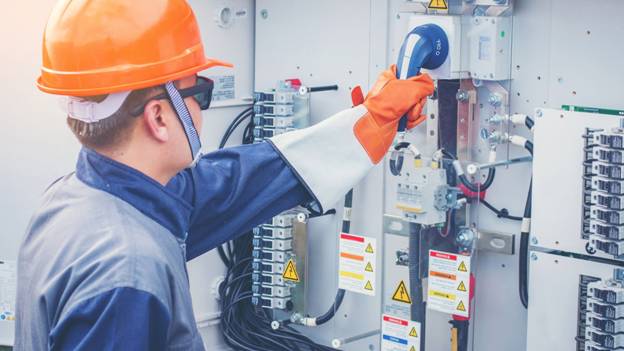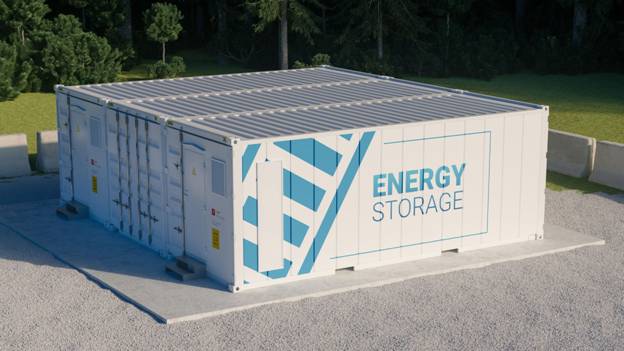Assessing Your Business’s Backup Power Needs
Before diving into the specifics of battery storage or generators, understanding your business’s backup power requirements is the first step. Various factors, such as your business type, location, and the duration of backup power needed, will play a role in your final decision.
Why Reliable Power Backup is Essential
Businesses rely on electricity for daily operations, from powering essential systems like lighting and HVAC to supporting IT infrastructure. For sectors like healthcare, data centers, and manufacturing, any downtime caused by power outages can lead to severe financial losses, compromised security, or even regulatory violations.
Key Situations Requiring Backup Solutions
Backup power solutions are essential in various scenarios, including:
- Natural Disasters: Hurricanes, earthquakes, and wildfires can disrupt power for hours, days, or even weeks and contribute significantly to downtime.
- Grid Instabilities: In areas where the power grid is unreliable, having a backup system helps prevent frequent disruptions and avoid the constant restarting of your infrastructure.
- Peak Power Demand: Certain industries experience high power consumption periods that can strain the grid – a backup solution helps you work around these peak periods.
- Critical Business Needs: Businesses handling data, customer transactions, or medical equipment must have a consistent power source to avoid severe repercussions from third party regulatory firms or breaches of SLA in their contracts with clients.
Battery Storage Systems for Business
Battery storage systems are increasingly popular due to their eco-friendly profile and technology advancements that have made them a viable option for many businesses.
How Battery Storage Works
Battery storage systems store energy in rechargeable batteries, which are then discharged when needed. These systems are typically charged from the grid or a renewable source, such as solar panels, when electricity costs are low. During an outage, the battery system kicks in almost instantaneously, providing power without interruption. Most systems are scalable, meaning they can be customized to meet a business’s specific energy requirements.
Benefits of Battery Storage
Battery storage systems offer several benefits, including:
- Silent Operation: Battery systems operate quietly, reducing noise pollution and making them ideal for settings where silence is valued, such as offices or healthcare facilities.
- Eco-Friendly: Battery storage doesn’t produce emissions during use, making it a greener alternative compared to traditional generators.
- Instant Power Delivery: Batteries provide an immediate power supply, minimizing downtime.
- Reduced Energy Costs: Businesses can store energy during off-peak hours when rates are lower, leading to reduced utility bills.
- Integration with Renewable Energy: Battery storage is an excellent addition to solar or wind power, allowing businesses to store excess energy for later use.
Generators as a Backup Solution
Generators have been the go-to choice for decades, providing reliable backup power across many industries. While battery storage is gaining traction, generators remain essential in scenarios requiring prolonged power support.
How Generators Provide Backup Power
Generators convert fuel, typically diesel or natural gas, into electricity through combustion. In the event of a power failure, an automatic transfer switch activates the generator, which then supplies electricity to your business. Generators can run continuously for days or even weeks, depending on fuel availability, making them ideal for long-term outages.
Advantages of Generators for Businesses
Generators bring several key benefits to the table:
- Proven Reliability: Generators have a long-standing history of dependability, especially in critical sectors like healthcare and telecommunications.
- Long Duration of Power Supply: For businesses that require having days or even weeks of continuous power on standby, the best generator for business needs is often the more practical choice.
- Adaptability: Generators come in various sizes, allowing businesses to select a model tailored to their specific power needs.
- Cost-Effectiveness for Long-Term Use: Generators can be more affordable over the long term for companies with high power demands during outages.
Battery Storage vs. Generators: A Direct Comparison
Choosing between battery storage and a generator depends on several factors. Here’s a side-by-side comparison to clarify their differences and help you pick the option that’s best for your business.
Cost and Investment Over Time
Battery storage systems generally require a higher upfront investment but offer potential savings through lower operational costs and utility rate arbitrage. Batteries also require less maintenance than generators, reducing long-term expenses.
Generators, while cheaper upfront, incur ongoing fuel and maintenance costs, especially if used frequently. For short outages, a generator might be more cost-effective, but for companies looking to minimize operational expenses over time, batteries offer a better return on investment.
Environmental Impact
Battery storage systems win in terms of environmental impact. They operate without emissions and can be paired with renewable energy sources, supporting a business’s sustainability goals. By contrast, traditional generators emit carbon dioxide and other pollutants, especially those powered by diesel.
Businesses aiming to reduce their carbon footprint and achieve sustainability certifications might find battery storage to be a better choice.

Maintenance and Operation
Battery storage systems require minimal maintenance and can be monitored remotely. In contrast, generators involve more frequent upkeep, including fuel checks, oil changes, and air filter replacements. For companies with limited maintenance resources, batteries are typically easier to manage.
Deciding on the Best Solution for Your Business
Choosing between battery storage and generators depends on factors such as the size of your business, budget, sustainability goals, and the nature of your power needs.
Power Needs and Budget Considerations
If your business experiences only short, infrequent outages, a battery storage system may suffice. However, for businesses in industries that rely heavily on power like data centers or healthcare, generators can provide more reliable and long-term support.
Budget constraints are also a major consideration. Businesses with tighter budgets might lean toward generators due to lower initial costs, while those looking to save on maintenance and operational costs might consider investing in battery storage.
Reliability and Sustainability Goals
Battery storage aligns well with businesses focused on sustainability and eco-friendly operations. On the other hand, if long-duration reliability is a priority and your business is less concerned with environmental impact, generators offer a much larger proven track record of success and endurance.



